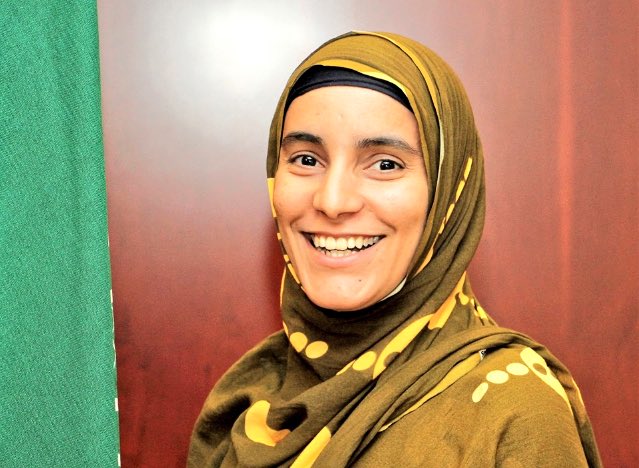
Senia Bachir
UWC Red Cross Nordic, 2004-2006
UWC NC Refugees from Western Sahara students are committed to making a difference, which happens in many ways.
Some have left UWC to pursue specialist training and education. Others have set up initiatives, charities and businesses based on projects they founded at UWC. Others have channelled their confidence and commitment into ideas that make a real difference to communities, or challenge injustice.
UWC helps every student understand that their ambitions are possible. And offers the support, guidance and a global network to make their ideas a reality.
For over 60 years, UWC graduates have experienced many different careers across a variety of sectors, world wide and contributed to their communities, creating initiatives that make a difference.
Find out more about our former UWC NC Refugees from Western Sahara students and the impact they have had and continue to have globally.

UWC Red Cross Nordic, 2004-2006

UWC Red Cross Nordic, 2004-2006
My name is Senia, I was born and grew up in the Sahrawi refugee camps in southwest Algeria (or as we like to call them the camps of pride and dignity). Right now I am the Polisario Front (Western Sahara National Liberation Movement) Representative to Sweden and Norway. I am a scientist by training and an advocate for my people’s rights for liberation and self-determination by choice. And more recently a proud mother. Even though one may technically call me a diplomat but I always see myself as a refugee, an activist and a defender of all things rights and justice.
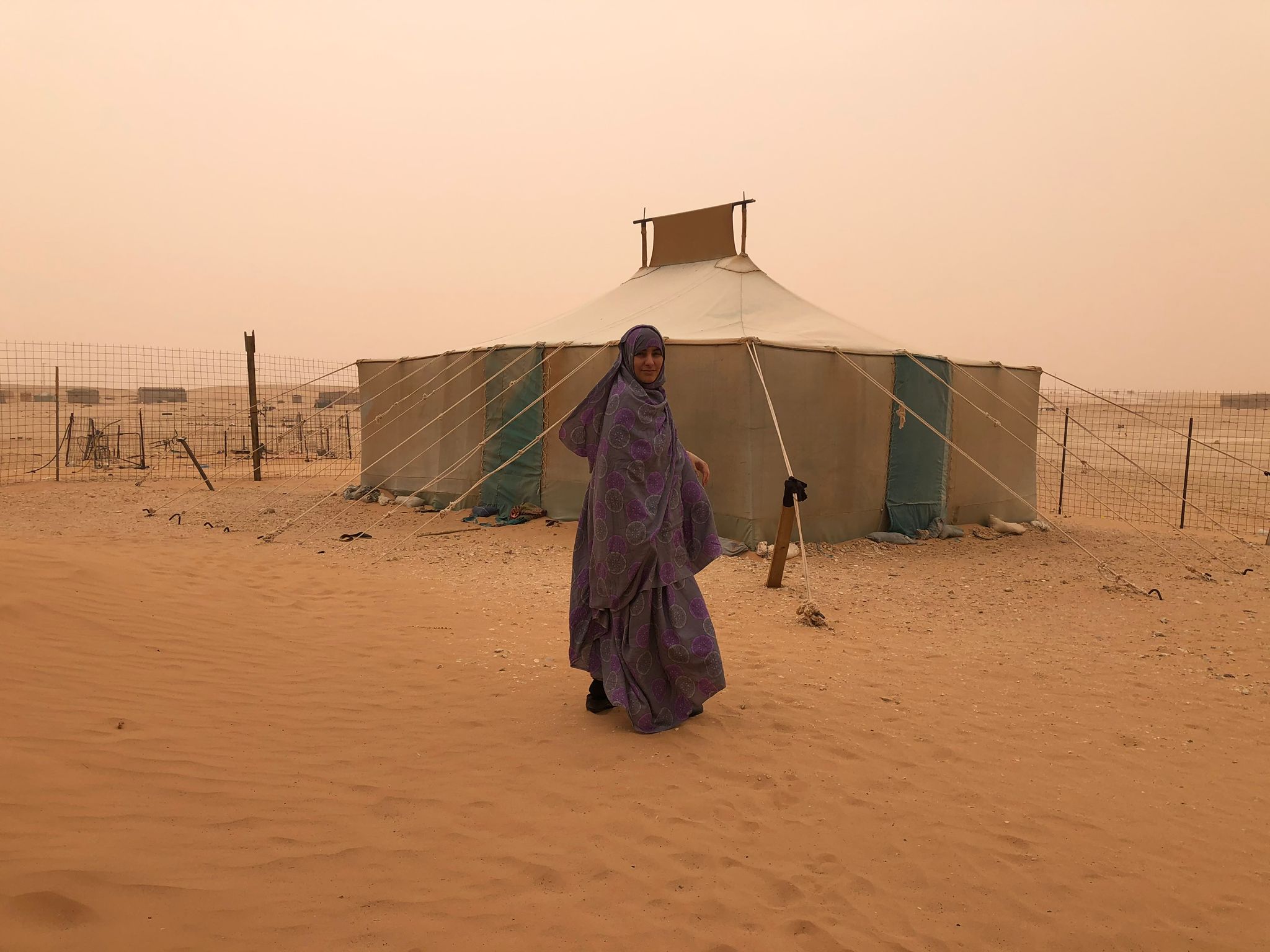
Senia in the Sahrawi refugee camps.
As the first Sahrawi UWC student, UWC and more specifically RCNUWC transformed my life and its trajectory in ways never imagined. It shaped my perspective of the world, my abilities to make a difference and exposed me to a beautiful and diverse world. UWC gave me a remarkable group of lifelong friends and a network of change makers and leaders across the globe.
In the summer of 2003, I was sitting in the shade of my family’s tent in Smara camp when two Norwegian women (Heidi and Hilde) came looking for me to complete for a scholarship. Back then I never saw myself studying abroad and most certainly never heard of something called UWC. I applied and competed for the scholarship with very little hope I would ever get it. So you can imagine my surprise when I was selected. A year late I was among the Norwegian maintains and fjords, and 200 students from 80 countries. A whole new world just opened up to this teenage desert girl.
My time at UWC was not with its own challenges; from language barrier to being the only girl wearing Hijab. But the camps and Algerian boarding schools had given me all the tools I needed to persevere, struggle and eventually thrive. I took advantage of all that RCNUWC had to offer from rock climbing to kayaking to helping asylum seekers in the nearby town. I struggled with academics in a language but passed the IB and secured a scholarship to study university at Mount Holyoke College in the USA.
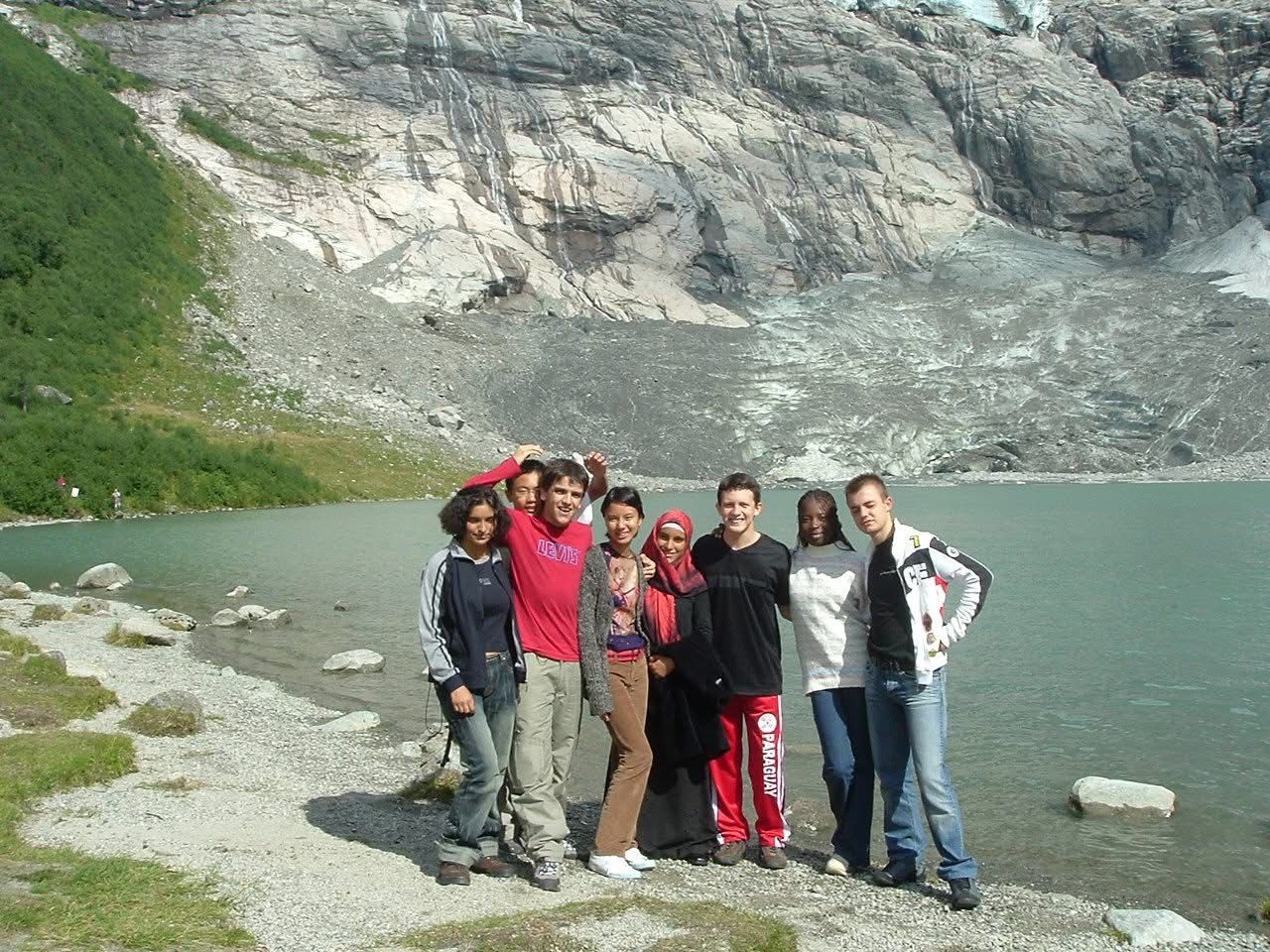
Friends and Senia at UWCRCN, 2004.
After UWC, I finished my studies with BA in Biological Sciences and then masters degree in International Community Health. Then I went back to the camps and worked at the Sahrawi Ministry of Health for couple of years before getting an opportunity to serve as a political adviser for the first Chairperson of the African Union Commission, Dr. Nkosazana Dlamini Zuma. After spending six years in Addis Ababa, I had the privileged and honor to be appointed to serve my people as a representative in 2022.
The biggest transformation of my life has been the ability to speak for my people, our cause and amplify their voices anywhere I went. I never thought I had to tell everyone I meet where my county Western Sahara but I found myself informing and advocating for the cause in various platforms and fora, including the United Nations General Assembly and the European Parliament. But my life changed when UWC opened the doors to the world for me and provided me with the skills and tools to truly explore it and make a small difference.
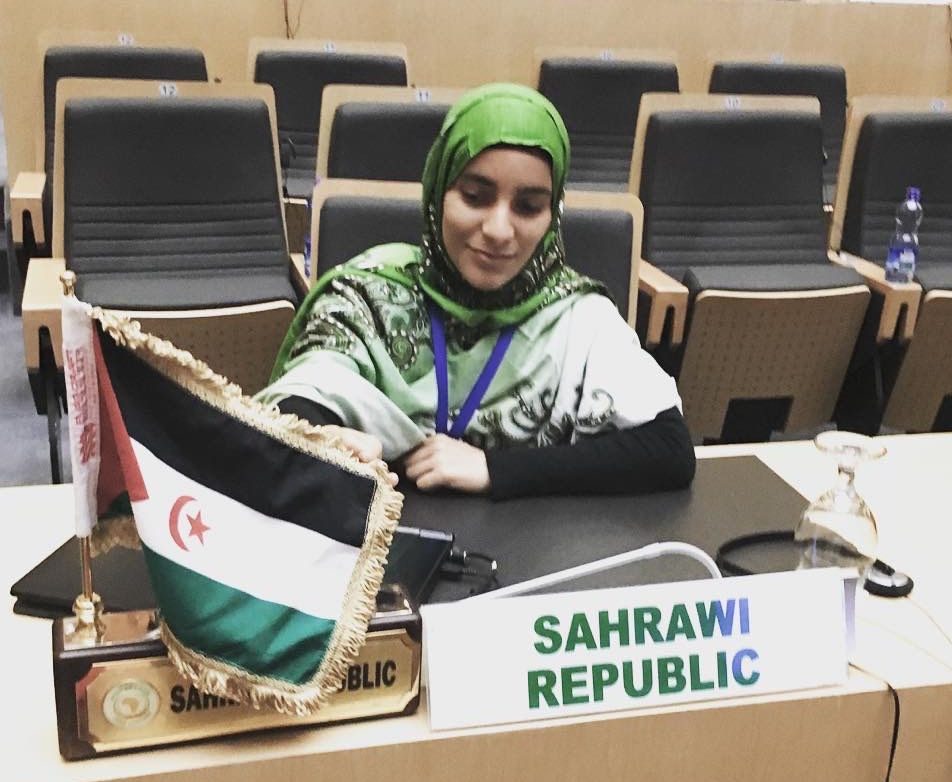
Senia at the African Union.
For many years after graduating from UWC I served in our national section committee. I do plan to go back in becoming more active and involved in choosing the future UWC graduates. When one graduates from UWC, it doesn’t leave you. My connection and network with UWC alums is still strong and I am lucky to meet many of them as I travel through the world.
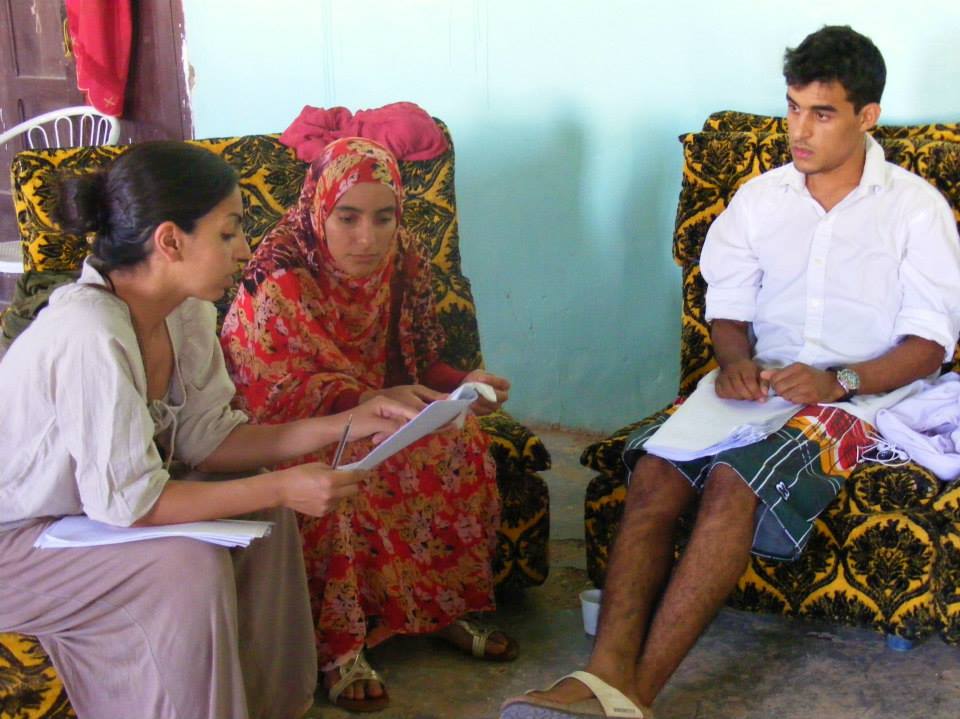
NC Refugees from Western Sahara’s selections.
My most important advice to potential Sahrawi UWC students, don’t forget your people and cause as you endeavor in this exciting journey. You have been chosen and selected because you are special and have potential to become successful agent of change for Western Sahara and the world. Secondly, take on the challenge and the difficulties head on. Experience it, live it and learn from it. As a Sahrawi refugee you are well prepared to endure, be resilient and transform. So go for it and go forth. Your people and country need you stronger, more critical thinker and better doer.
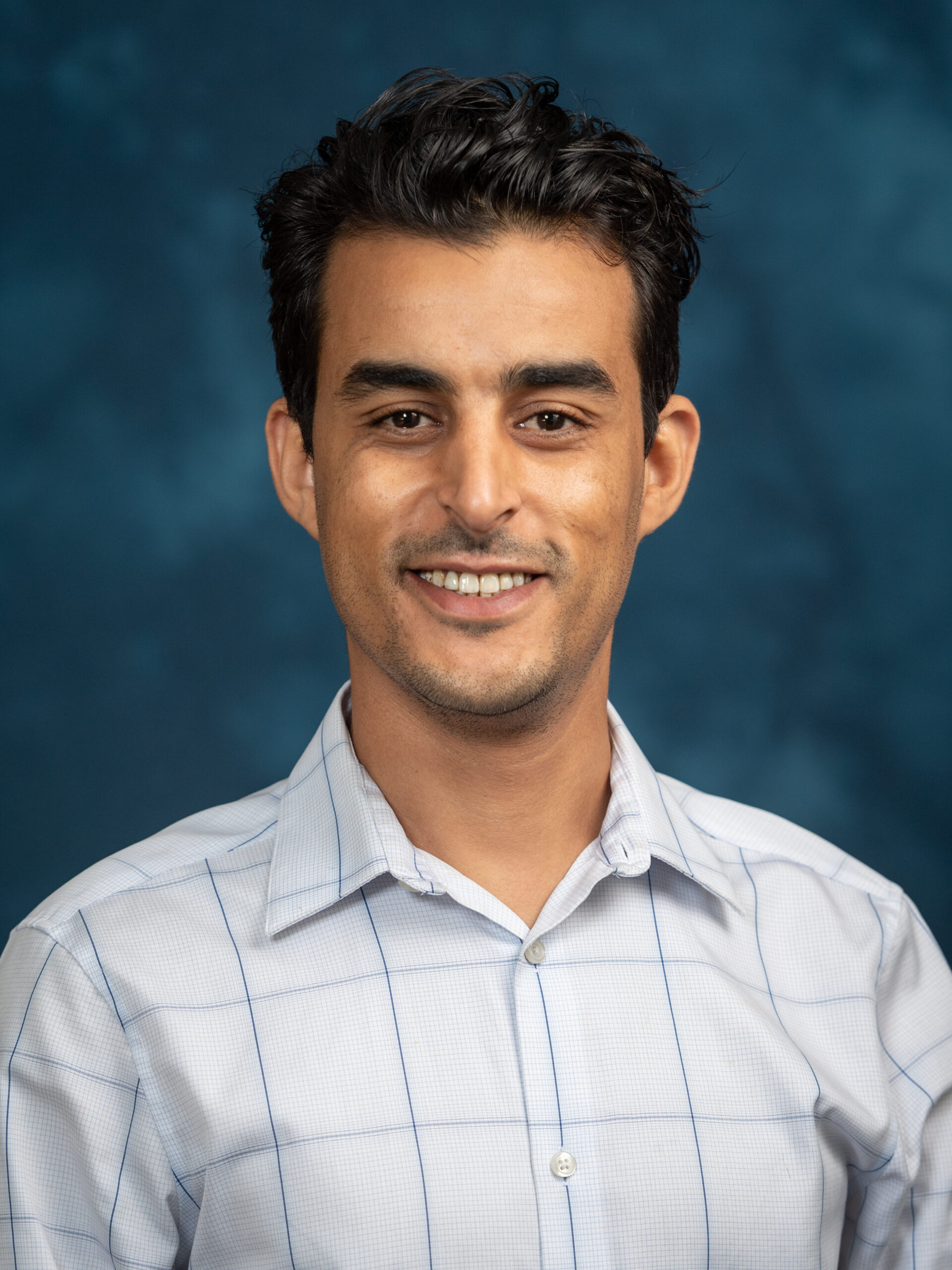
UWC Costa Rica, 2011-2013

UWC Costa Rica, 2011-2013
My name is Bachir Abeid. I was born and raised in the Smara refugee camp in Tindouf Province, Algeria, one of several camps established for Sahrawi refugees displaced as Western Sahara was occupied by Morocco. Currently, I am a PhD student in Mechanical Engineering at the University of Michigan, focusing on high-rate material characterisation. My journey has taken me from the refugee camps in Algeria to classrooms in Costa Rica and the United States, and now to the cutting edge of engineering research.
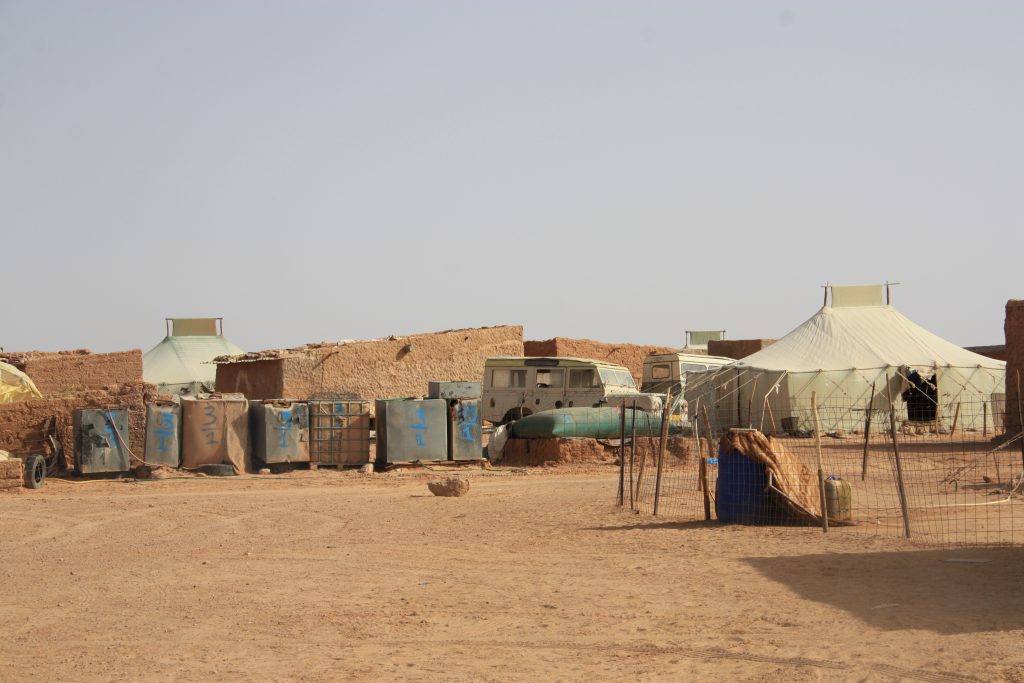
Smara refugee camp, Tindouf, Algeria.
My introduction to the United World Colleges (UWC) was unexpected but transformative. Two Norwegian UWC alumni visited my camp and encouraged me to apply. At the time, educational opportunities in the camps were limited—after primary school, students were sent to boarding schools around Algeria, but prospects for higher education or meaningful work were scarce for refugees.
The UWC network, with its mission to unite people, nations, and cultures for peace and a sustainable future, offered me a full scholarship to study at UWC Costa Rica. The transition was daunting—the distance, the language, and the cultural differences were all new to me. However, UWC provided a supportive environment, helping me learn English, thrive academically, and prepare for university applications. The International Baccalaureate (IB) program opened doors I never imagined possible.
After graduating from UWC Costa Rica, I was accepted to Brown University in the United States, where I earned my bachelor’s degree in mechanical engineering. Following Brown, I worked at Veryst Engineering, an engineering consulting firm near Boston. Throughout my academic and professional journey, I remained connected to UWC, volunteering to help other Sahrawi students access the same opportunities that changed my life.

First time joining NC’s selections, Rabouni refugee camp.
The trajectory of my life has changed dramatically. Growing up in the camps, higher education—let alone studying abroad—seemed unattainable. Now, I am conducting advanced research at one of the world’s leading universities. UWC not only gave me an education but also a global community and the tools to navigate complex systems. Most importantly, it instilled in me a sense of responsibility to give back to my community and to help others access similar opportunities.
I am deeply involved with the UWC National Committee of Refugees from Western Sahara. Along with other volunteers, I identify promising students in the camps, guide them through the application and selection process, and help them prepare for the challenges ahead. I assist with paperwork, travel arrangements, and visas, and continue to mentor students as they adjust to new environments. All of this work is voluntary, and I see it as a way to pay forward the support I once received.
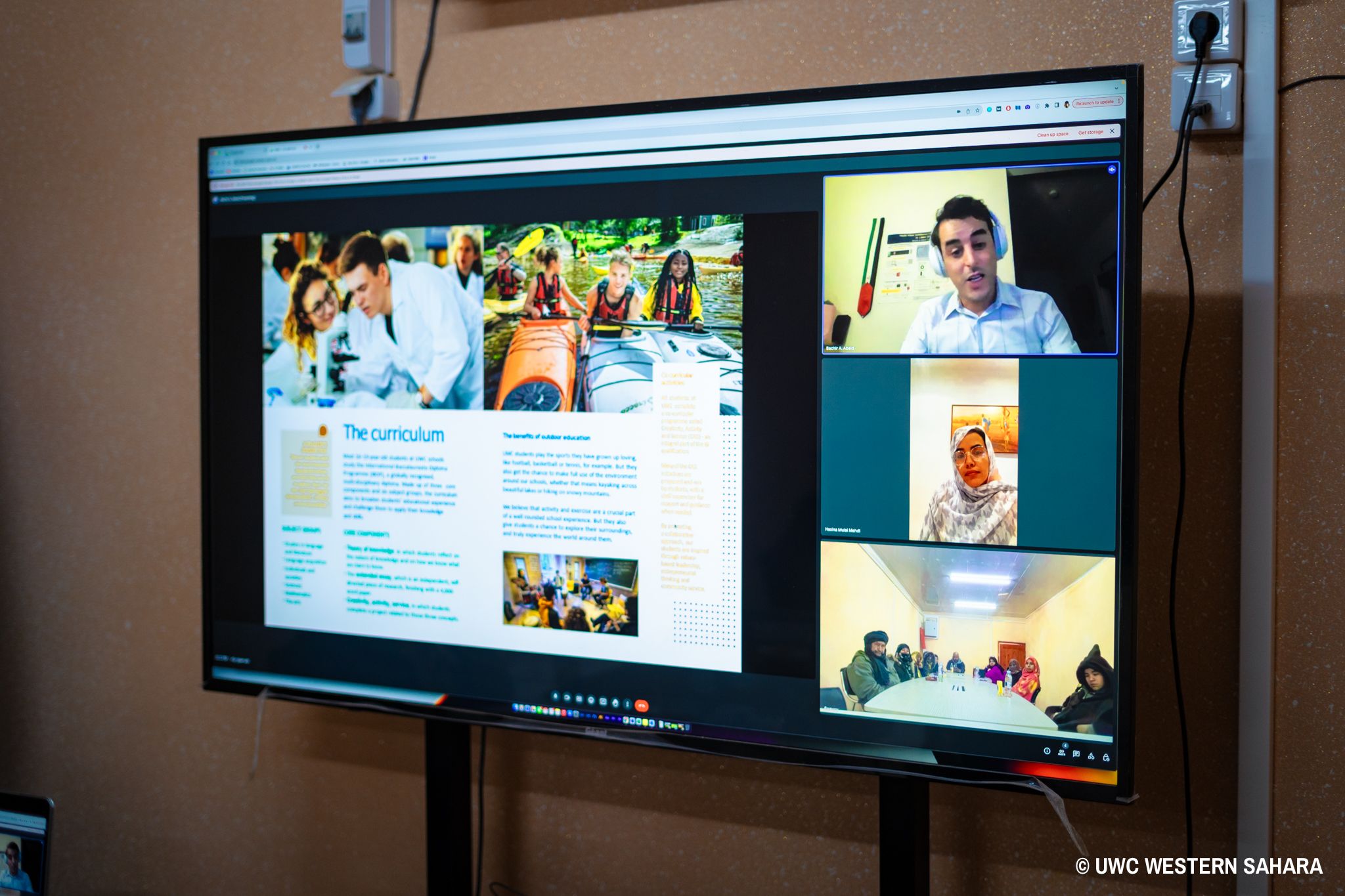
NC’s selections 2023, Ministry of Education, Rabouni refugee camp.
To Saharawi students considering UWC: it is a life-changing opportunity. The transition can be challenging—culturally, academically, and emotionally—but the support systems are strong, and the rewards are immense. UWC opens doors to higher education and a global network of friends and mentors. It is a chance to represent your community on the world stage and to bring back knowledge and skills that can help shape the future of Western Sahara.
No matter how far I go, my roots remain in Smara. My experiences have taught me that education is not just a personal journey but a collective one. Every success I achieve is shared with my community, and every student I help is a step toward a brighter future for us all. I am not here just for me; I am here for those who come after me.
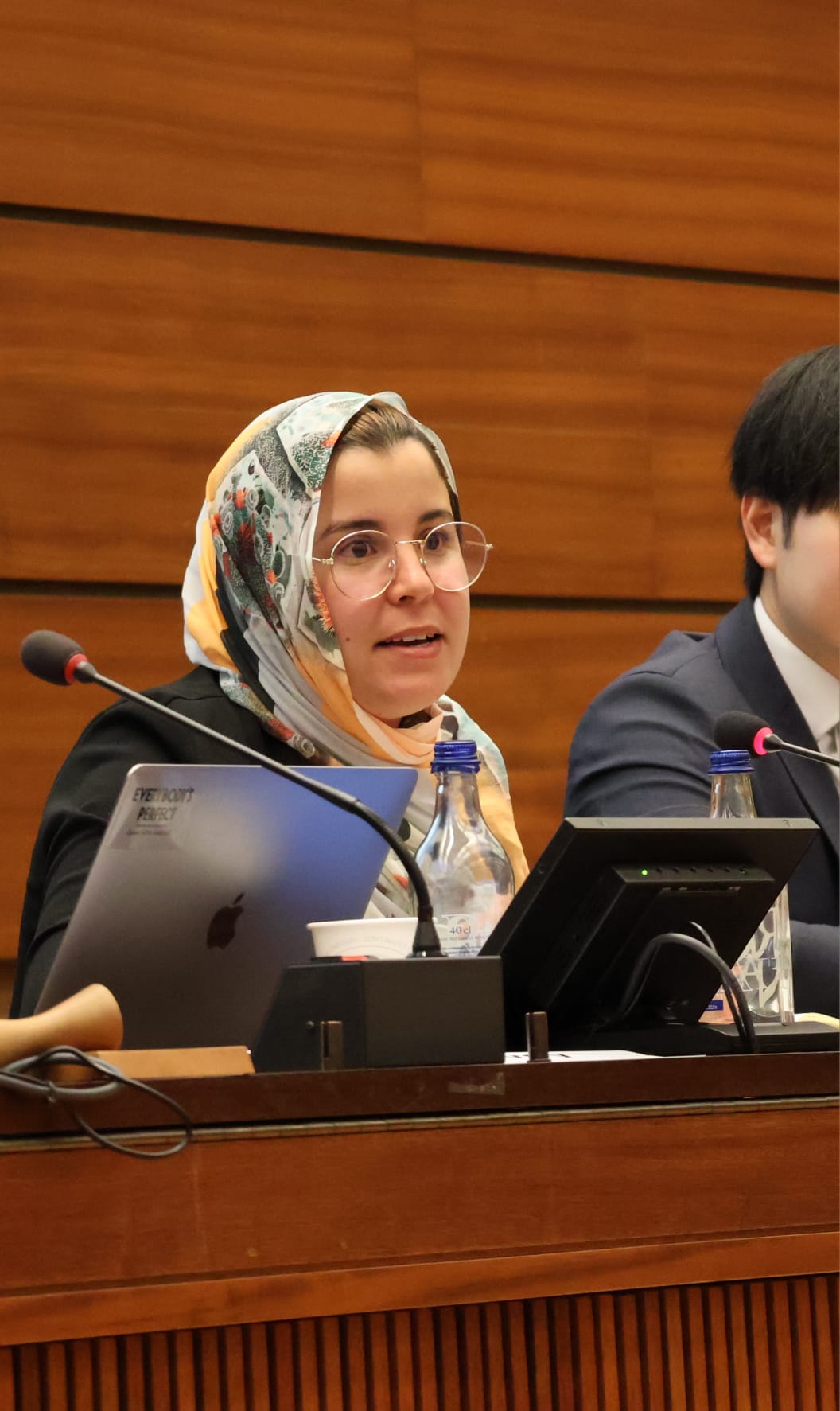
UWC Robert Bosch, 2014-2016

UWC Robert Bosch, 2014-2016
Attending a UWC was truly transformative. Living and learning alongside students from so many different cultures opened my eyes to how interconnected our struggles and dreams are. The academic challenges were real, but what really shaped me was the environment of shared purpose and the constant push to question, reflect, and act with intention. Right after UWC, I took a gap year to work with an NGO, mostly focused on advocacy, human rights, and environmental activism. That year really helped me understand what kind of work motivates me: being in the field, supporting and advocating for my people’s right to self-determination.
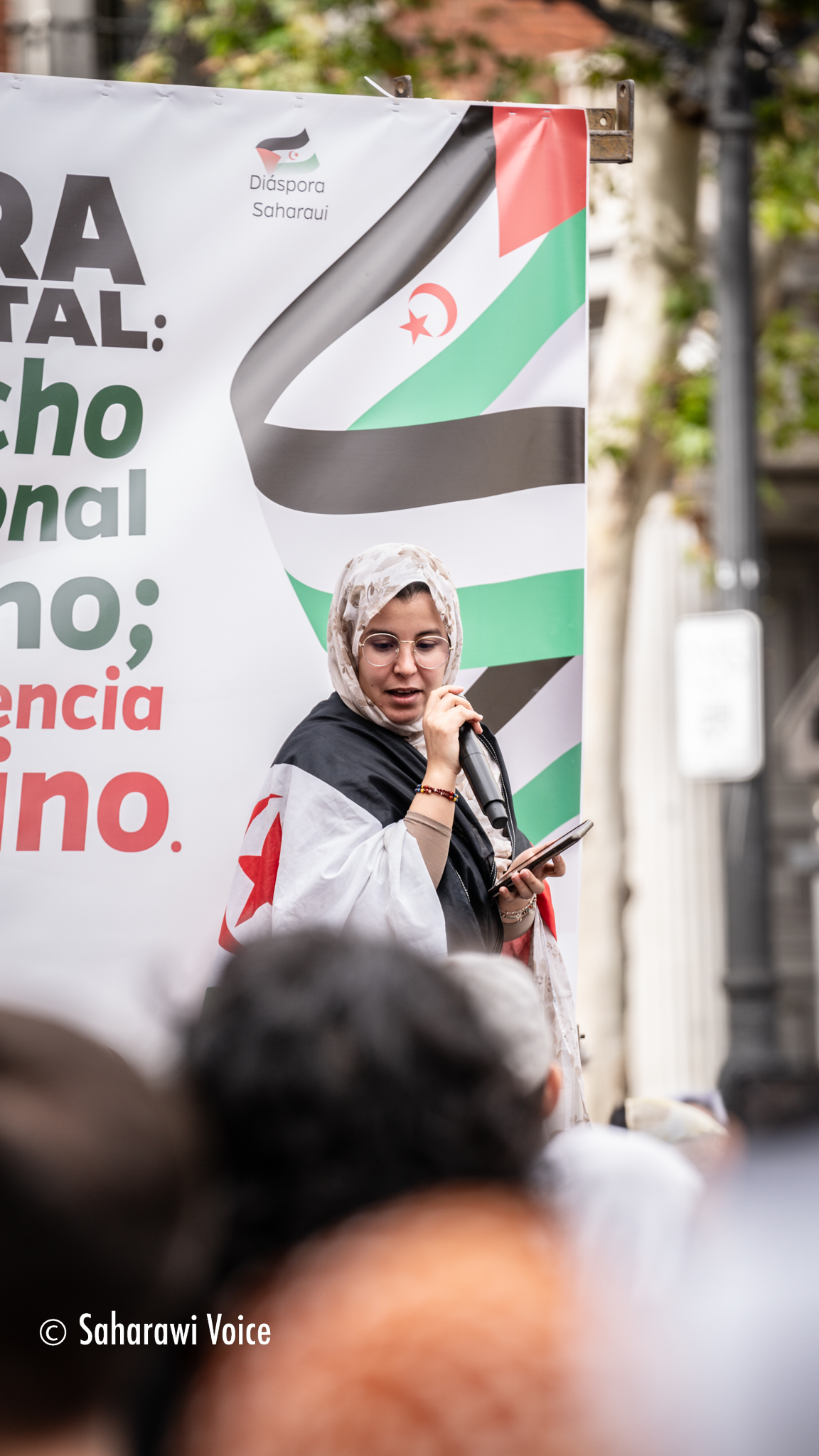
Demonstration for a free Western Sahara, Madrid, Spain.
Eventually, I went back to college, even though I’ve always felt that the traditional education system was a bit of a formality. I ended up doing a double degree in Business Administration and Translation. It wasn’t my first choice, to be honest, I actually started out in Chemistry because I was obsessed with it, but after two years, I realised that I’m definitely not someone who belongs in a lab!
While studying, I was also working, doing everything from advocacy in the European Parliament to working with grassroots organisations. It was intense, but I learned so much. I even spent some time working at the UN Human Rights Council in Geneva. After graduating, I returned to Geneva, where I now coordinate international NGOs that support the Sahrawi people and work with the Geneva Working Group on Human Rights in Western Sahara.
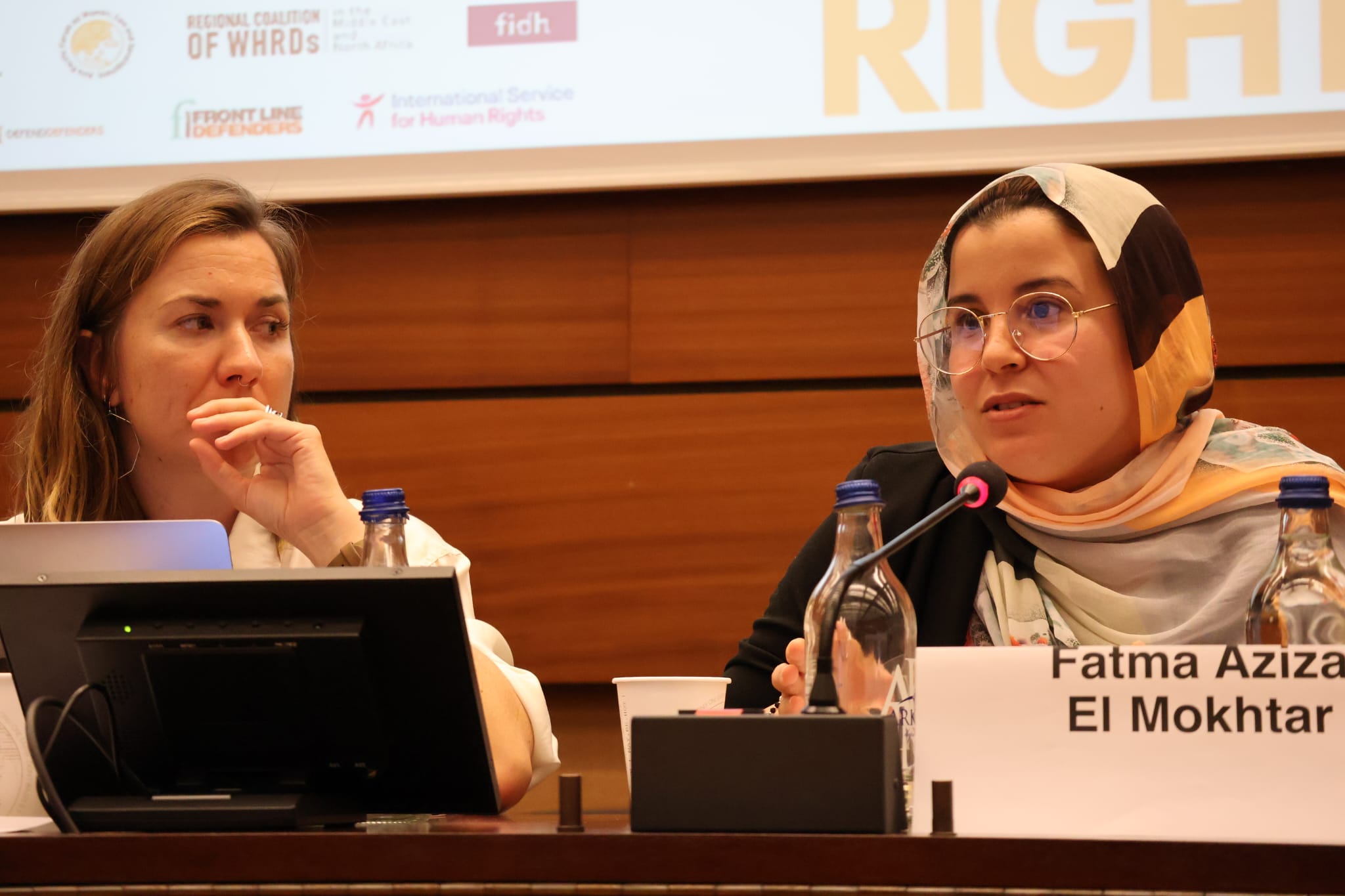
UN Human Rights Council in Geneva.
Over the past few years, I also served as the International Coordinator for UJSARIO for two years, and currently, I’m the Director of the Sahrawi Observatory for Natural Resources and Environmental Protection. So, a lot has happened but in a way, it’s all been connected to what I started doing right after UWC.
UWC changed my life in so many ways. It helped me believe in possibilities I couldn’t imagine before. It made the world feel both bigger and more connected. It gave me confidence, but also a sense of responsibility. UWC doesn’t magically solve everything, but it can give you the tools and network to begin shaping your own path.
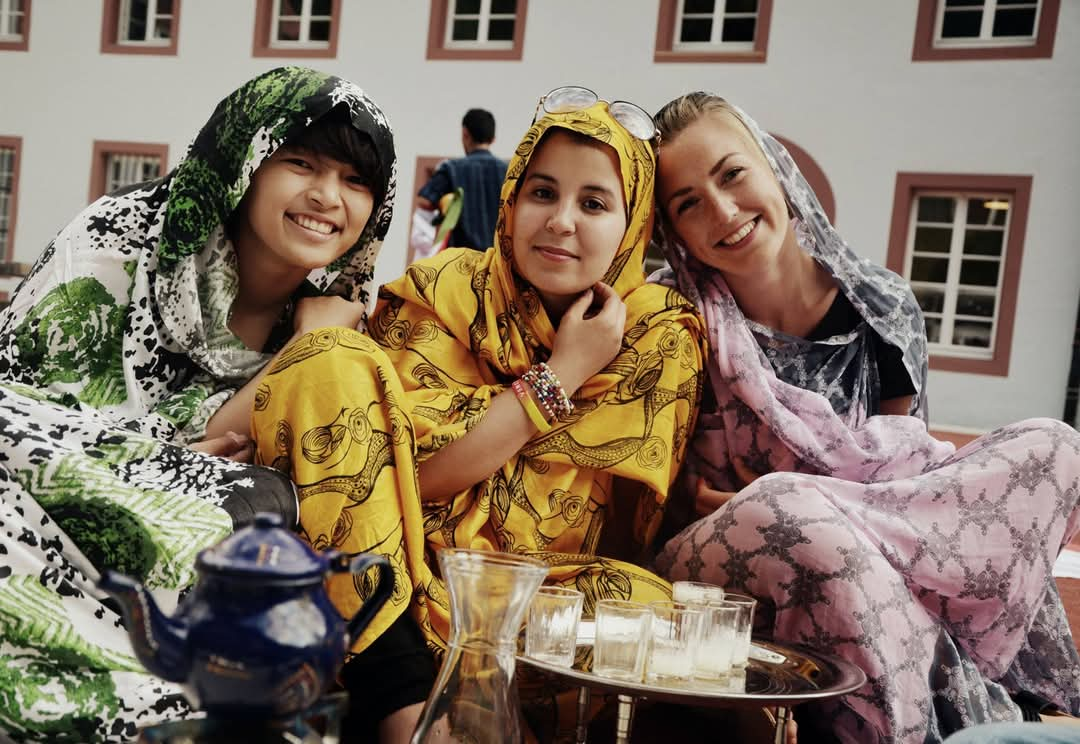
Fatma at UWC Robert Bosch.
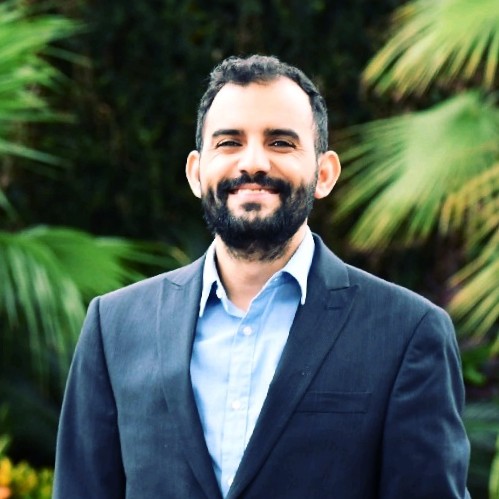
Li Po Chun UWC Hong Kong, 2011-2013

Li Po Chun UWC Hong Kong, 2011-2013
My name is Mulay Sid Ahmed, and I am an alumnus of Li Po Chun United World College of Hong Kong, graduating in 2011. I was born and raised in the Saharawi refugee camp of Smara, and my journey has been significantly shaped by my UWC experience and a continuous commitment to advocacy and community empowerment.
My time at UWC from 2009 to 2011 was transformative. It taught me the profound truth that with the power of education and community, change is imminent. Being immersed in a diverse global environment, engaging with students from all walks of life, and grappling with complex world issues broadened my perspective immensely. It wasn’t just about academics; it was about fostering a deep understanding of different cultures, developing a sense of shared responsibility, and recognising the potential we all have to make a difference. The UWC experience instilled in me a strong sense of purpose and a belief in the power of collective action.
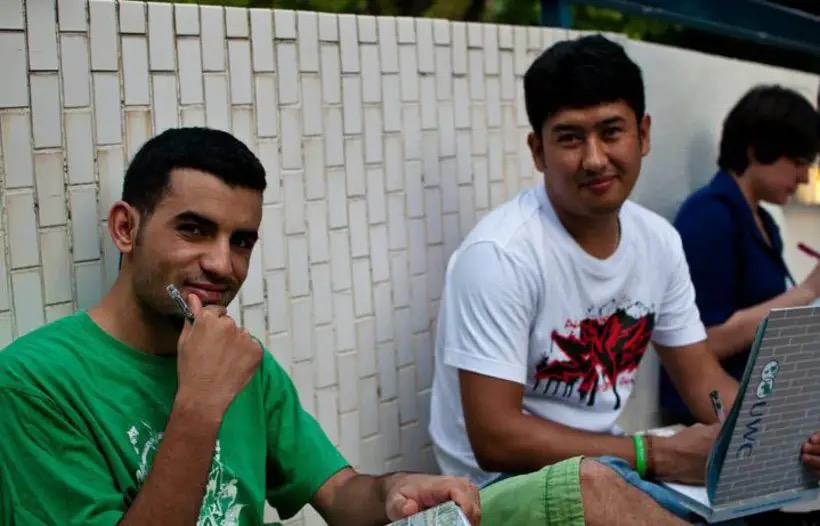
Mulay at LPC UWC.
After graduating from UWC, I pursued higher education, earning a degree in Computer Science and Management Information Systems with a concentration in Non-Profit Organizations from Westminster College. Professionally, I’ve built a career in IT, initially as a System Engineer and delivery consultant at Cerner Corporation, and currently as an Assistant Director of Engineers at Principal Financial Group.
Beyond my professional career, my commitment to advocacy and community work has remained a central part of my life. I am a co-founder and Assistant Director of the Saharawi Association in the USA (SAUSA), a non-profit organization dedicated to raising awareness and supporting the people of Western Sahara. Through this work, I’ve had the privilege of addressing the United Nations 4th Committee multiple times, holding them accountable for their unfulfilled promise of a referendum on Western Sahara’s fate. I also returned to the refugee camps through the Davis Project for Peace Grant to build a community garden, a project rooted in direct impact. My dedication to giving back has also led me to various volunteering roles, including IT consultant and Web Master at Humanity for Children, and IT Manager for Faith Maternity Care, focusing on empowering young mothers.
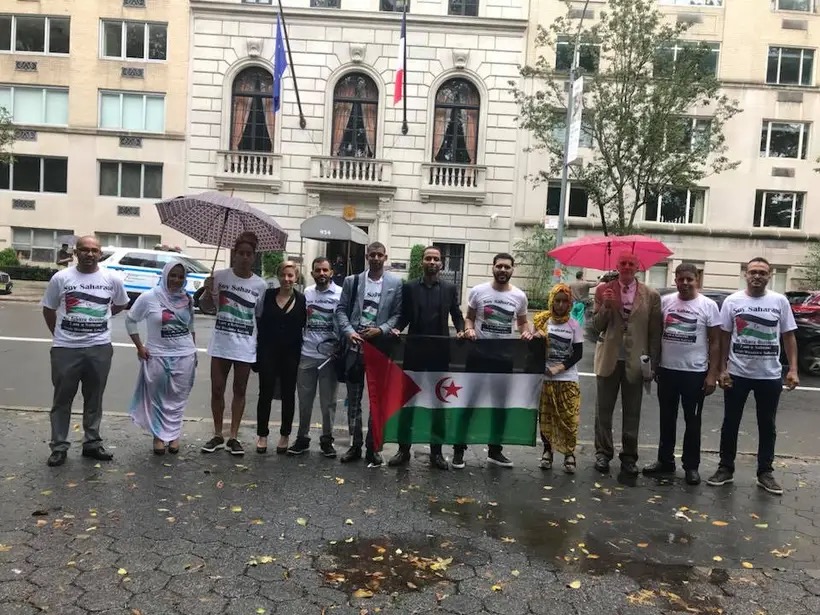
Demonstration organised by SAUSA.
My life has been profoundly shaped by my UWC experience. It ignited a passion for justice and a commitment to advocating for marginalised communities, particularly my own in Western Sahara. The UWC ethos of challenging the status quo and believing in the power of young people to create a better world has been a constant guiding principle. It provided me with the skills and confidence to pursue both a career in technology and a significant role in humanitarian efforts, demonstrating that these paths are not mutually exclusive.
I am still actively involved with UWC. I am a formal member of the Saharawi National Committee, where I play a crucial role in the student selection process for future UWC scholars. This allows me to directly contribute to the UWC mission by helping to identify and empower the next generation of changemakers from my region.
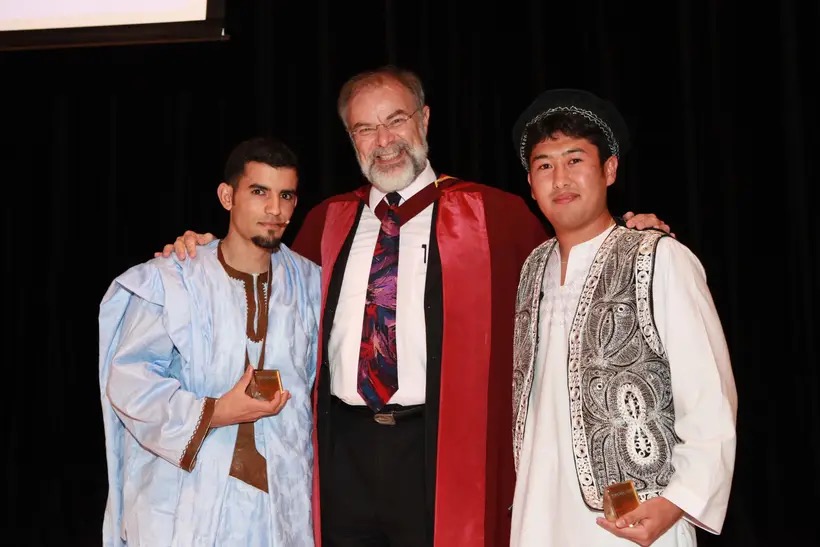
Mulay’s graduation from LPC UWC, 2013.
To potential Saharawi students considering UWC, I would say this: the UWC experience is an unparalleled opportunity for personal growth and global understanding. It will challenge you, inspire you, and connect you with a network of passionate individuals who believe in making a difference. Embrace the diversity, engage in the discussions, and use your voice. UWC will equip you with the tools to advocate for your community and contribute to a more peaceful and sustainable world. It’s an experience that will not only shape your academic path but will also profoundly impact who you become.